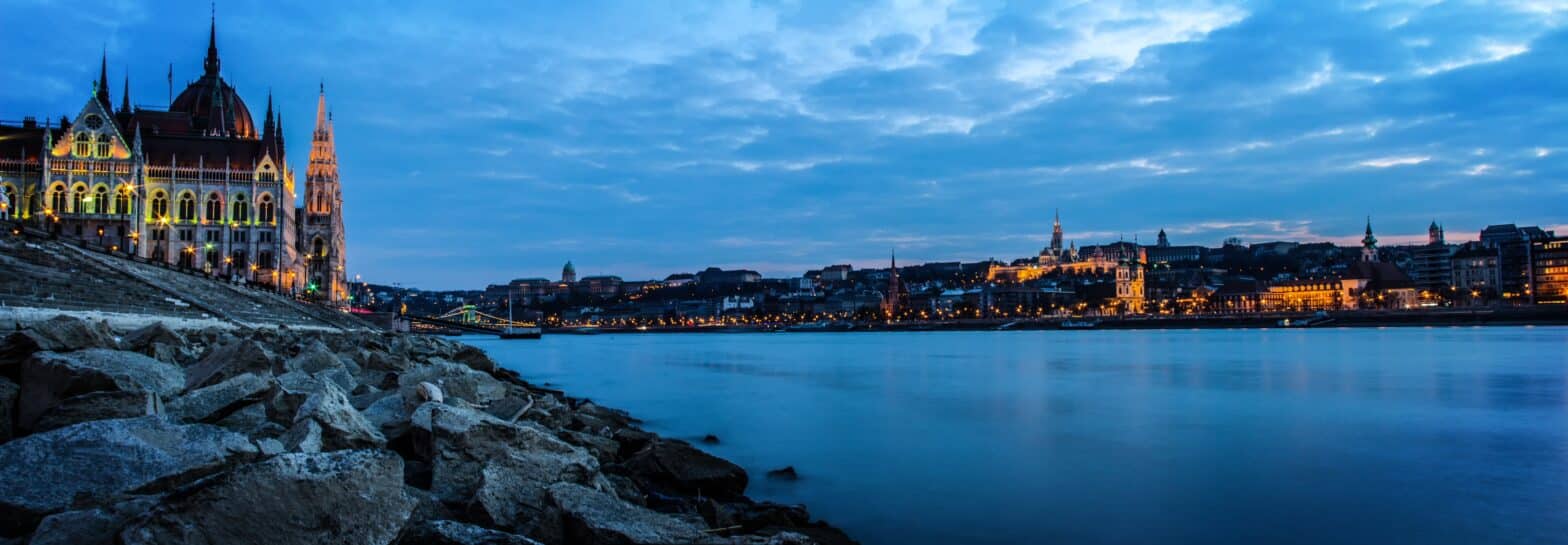Ready to settle in the heart of Central Europe? Hungary has become a popular destination for many expats with various profiles and life projects, among which include retirees, digital nomads, entrepreneurs and those on secondments.
So, what is it like to settle in one of the oldest countries in Europe? What is on offer for an expatriate in Budapest and the rest of the country?
Here are some answers to successfully navigate through your expatriate journey to Hungary!
Moving to Hungary: some entry formalities
As an EU or EFTA citizen, you do not need a visa or permit to enter Hungary. However, third-country nationals such as Americans will need to apply for entry and residence permits.
In all cases, at the end of three months, registration with the Immigration Office is mandatory if you are to continue to reside and work in Hungary.
Where should you live in Hungary?
Budapest, the pearl of the Danube, is undoubtedly the favourite destination for many expatriates in Hungary. Both traditional and trendy, the capital is an enjoyable city in which to live. It has plenty of cultural activities along with a thriving culinary scene, and ease of movement.
Located at the east of the capital, Debrecen – the ‘Calvinist Rome’ – is also popular with foreigners. Hungary’s second-largest city is a lively place; home to two renowned universities, cultural activities in abundance and beautiful architecture.
For a peaceful family life and great food, you might opt for Eger. Or, for a little more light in winter, you might want to locate in Szeged, the ‘city of sun’.
Your daily life in Hungary
Healthcare
Expatriates are covered by the public health insurance system (particularly for basic medical consultations and hospitalisation) as long as they are legally working or studying in the country. The Hungarian public health system, still in transition, is not very efficient. For expatriates, it is strongly recommended to turn to local private healthcare providers and to subscribe to an international health insurance.
Employment
EU and EFTA nationals do not need a work permit to take up paid employment in Hungary, provided they register with the regional immigration office. Third-country nationals such as Americans, on the other hand, must apply for a permit, which depends on the duration of their stay and their reasons for immigration. It can be difficult to find a job in Hungary as the government favours Hungarians and Hungarian speakers.
If you are looking for a job locally, and if you are anglophone, you will have more chances of finding international companies looking for skilled labour. It is also important to expand your search outside of Budapest! Hungary also attracts entrepreneurs who want to set up their own business and benefit from the simplified procedure to create a company as well as the low corporate tax rate (at 9%, it’s one of the lowest in Europe).
Accommodation
In Hungary, almost 90% of the population owns their own property. However, it is possible for expatriates to find, at least initially, a flat or house to rent.
Rental prices are generally quite low (outside of Budapest) compared to other European countries and leases have a minimum duration of one year.
In Hungarian cities, the rental market is quite dynamic and the offer is mainly limited to flats in buildings inherited from the communist period and to apartments in large five or six-storey buildings. Outside the urban areas, you are more likely to find houses to rent.
Don’t forget to sign a rental agreement that clearly states the rental amount, frequency of payments and the conditions for terminating the lease. You may be asked to pay a deposit and the first month’s rent.
Getting around
It is very easy to get around as Hungary has developed an extensive public transport network throughout the country. You can choose to travel by bus or train on a daily basis or for a day trip. You can organise all your travel from one end of the country to the other with this tool! Driving a car is also an option, but forget about taxis, which generally charge higher prices for foreigners!
Cost of living
Outside big cities such as Budapest and Debrecen, the cost of living remains quite low compared to other countries on the Continent, both in terms of outings, day-to-day living, and real estate. The cost of living is also low because salaries are lower than in the rest of Europe.
Opening a bank account
It is highly recommended to open a bank account in the country since you will need one to be able to complete several formalities and the country has its own national currency (the forint!). The procedure, which is relatively simple and quick, depends on the country you are from. EU and EFTA nationals will have to provide the bank with fewer documents than expatriates from outside the EU. Remember to compare bank charges between different banks before choosing one!
What about the weather?
The Hungarian climate is similar to that of the vast majority of continental European countries. The four seasons are very distinct from one another: summers are often hot and dry; winters are cold, snowy but sunny.
Once you’ve settled in, here are a some suggestions for ‘must try’ adventures
- ‘Taking the waters’! Adopt the Hungarian tradition of going to the baths as soon as you arrive! Throughout the vast majority of the country, you will find spas to relax and rejuvenate (in Budapest, head for the Kiraly or Széchenyi spas)
- Discover Hungary’s culinary heritage (töltött káposzta, pörkölt (gulash!), halászlé and Tokaji Aszú) and of course, several different types of paprika
- Explore Buda Castle
- Talk the night away in Romkocsmas (Budapest’s’ruin bars’)
- Cruise along the Danube
- Descend into the karst caves of Aggtelek
- Take the wine route (from Tokaj to Eger)
- Explore Lake Balaton, the ‘little Hungarian sea’
- Visit the very picturesque village of Holloko
- Take a break in the Hortobagy National Park!
